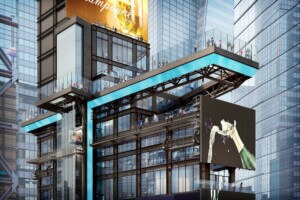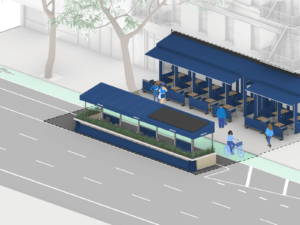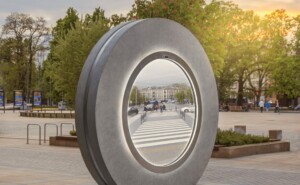New York City-based nonprofit design incubator the Design Trust for Public Space has announced two winning projects as part of The Restorative City: Building Community Wellness Through Public Space, a major initiative harnessing the transformative power of community-driven design to mend the health inequities that persist—and have been laid barer during the COVID-19 pandemic—across the five boroughs.
The initiative launched as an open request for proposals (RFP) process, the 11th overall in the Design Trust’s triennial RFP program, this past April and attracted a total of 90 submissions. All responded to the call for new ideas and solutions for the public realm focused on beautifying neighborhoods, bolstering inclusivity, and improving health outcomes for New Yorkers. Of the 90 submitted proposals, two winners were selected from a shortlist of eight projects by a nine-person jury panel.
The winnings proposals, which were acknowledged at a gathering held last night at Brooklyn’s Prospect Park, are The Neurodiverse City, a collaboration between Verona Carpenter Architects and WIP Collaborative, and Healing Hostile Architecture: Design as Care, a project led by the Design As Protest collective. The Neurodiverse City will be supported by the Center for Independence of the Disabled-NY, Bronx Independent Living Services, Include NYC, and P.S. 42 as secondary partners. The Healing Hostile Architecture team will select and announce a secondary partner at a later date.
Both projects will now begin their respective paths to implementation through the leveraging of the Design Trust’s “unique problem-seeking, power-sharing model of project delivery to bring about powerful, citywide change over the course of their development and realization,” per a press announcement. The next immediate steps are continued project scoping, planning, and fundraising; the Design Trust will also appoint Design Trust Fellows with expertise in relevant fields to lend support each project.
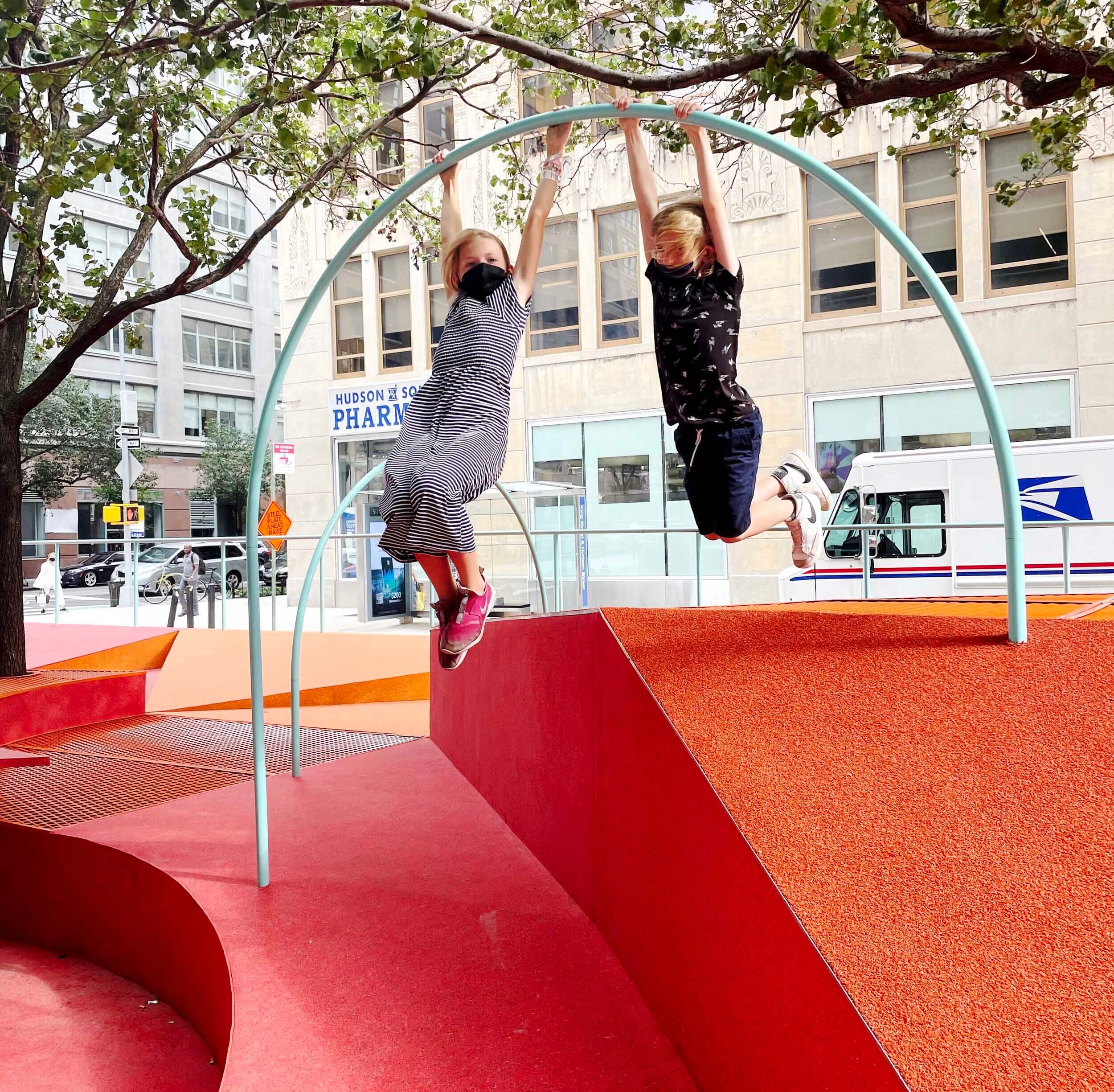
As described by the Design Trust, The Neurodiverse City “advocates for a built environment that supports the city’s entire population and the full range of their physical, neurological, and emotional needs-an issue that has taken on new urgency in the wake of the isolation and trauma of the pandemic.” At the heart of the proposal is the development of new public spaces for New Yorkers spanning the neurodiversity spectrum through a three-phase process that will begin with an audit of potential locales including playgrounds, streetscapes, and more. This will be followed by the development of prototypes and the proposal of recommendations meant to spur “dialogue about policy changes with key agencies and individuals.”
The creation of a lively, multifaceted space in the realm that can be accessed and enjoyed by neurodiverse populations of all ages, backgrounds, and abilities was recently explored and executed by WIP Collaborative in the form of Restorative Ground, a temporary play space installation that was selected as the winner in the Urban Design Forum-hosted Care for Hudson Square design competition. For The Neurodiverse City, WIP Collaborative, a feminist design platform and offshoot of Brooklyn-based architectural practice WIP Studio, is joined by Verona Carpenter Architects, a full-service, women-owned Manhattan architecture and interiors studio that describes itself as a firm that designs “with humanity and for resilience —and for inclusion, recognizing the neurodiverse world we live in.”
For Healing Hostile Architecture, Design As Protest (DAP), an “anti-racist, non-hierarchical, action-based” collective of BIPOC designers, proposes eradicating inhumane urban design tactics such as mounted spikes, pay-for-use public restrooms, benches that deter sleeping, and others that specifically target the city’s homeless population. As detailed by the Design Trust, the initiative “posits another approach that ceases the use of hostile architecture and reclaims public space through anti-racist policy that imagines spaces of care, designed through community input and leadership.” In addition to abolishing anti-homeless, behavior-restricting architecture through methods backed by newly created design guidelines and policy, Healing Hostile Architecture will promote community-rooted efforts that invest in affordable housing and BIPOC cultural spaces.
DAP is a project of the New Orleans-based multidisciplinary nonprofit Colloqate Design, a recent National Design Award winner in the Emerging Designer category.
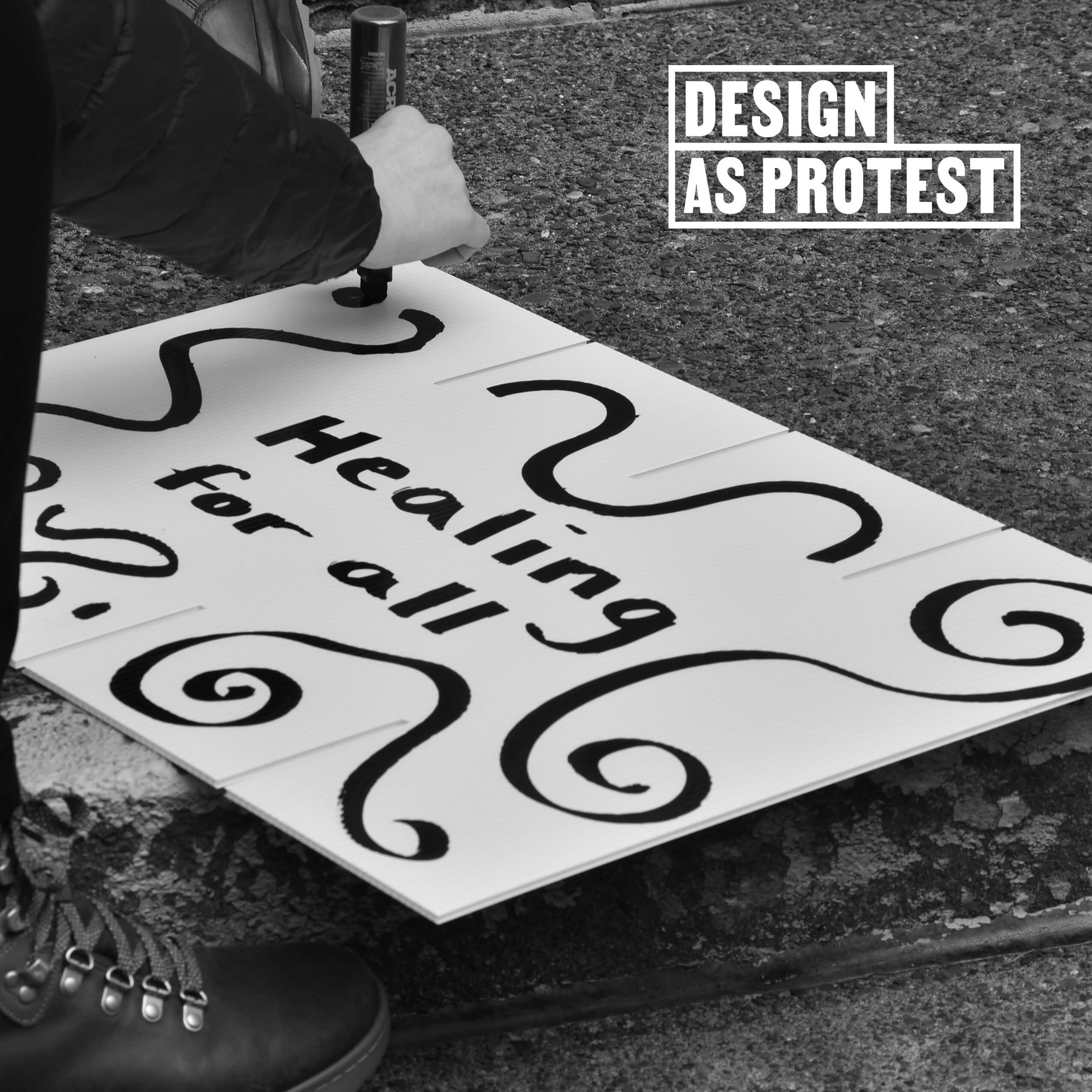
“We are proud to support the important work that will be accomplished through both of these visionary public space initiatives that seek to create a healthy, just, and equitable city,” said Matthew F. Clarke, executive director of the Design Trust, in a statement. “Through their advocacy for strong communities, each project reflects the mission of Design Trust by promoting public space and the built environment as key determinants in what makes us healthy and happy.”
Joining Design as Protest and WIP Collaborative/Verona Carpenter’s winning proposals on the Restorative City RFP shortlist were: Cleanwalks NYC (ERA-co with Woods Bagot, Farzana Gandhi, Columbia University, and the In[HEIR]tance Project); Addressing Water Safety and Public Pool Access in Rockaway, Queens (Jamaica Bay-Rockaway Parks Conservancy with the NYC Parks Department and the New York Water Safety Coalition); Activating a Citywide Trail Network to Increase Equitable Public Health (the Natural Areas Conservancy with NYC Parks); The Soundview Economic Hub (Youth Ministries for Peace and Justice with the NYC Office of Environmental Remediation and NYC Health), and the Forest Avenue ComeUnity Fridge Fellowship Program, a Staten Island-based mutual aid proposal that received an honorable mention from The Restorative City jury.
The Restorative City is supported in part by an endowment from the National Endowment for the Arts.








